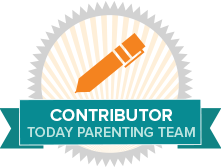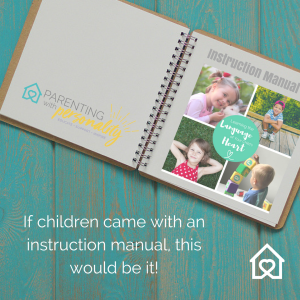The excited mother waits patiently to see that tiny beating heart of the baby she so eagerly anticipates. The ultrasound tech moves the wand, and with a swift tick of the clock and few words, this mother’s excitement changes to shock as the outline of that baby becomes her final memory. Never would she have imagined that this baby would not be held.
* * * * *
The trusting mother drops her child at preschool, waving good bye to her little sunshine as she goes. Never would she imagine that a tree would fall and injure her child, leading to a life turned upside down for this innocent little two year old, who had been their miracle child. With the watchful care of attentive and positive parents, those three short years afterwards would pass all too quickly as this little one’s injuries would amount to more than his little body could handle, and his fight would be over.
* * * * *
The happy mother carefully bundles her three kids and sends them out the door to board the bus on the cold and snowy day. Never would she imagine that the bus would collide with a snow plow and take the lives of two, or that she would drive upon the accident and be left with the horrible images of that day.
* * * * *
Death. A horrible stark word. One we hate to hear. An unbearable thought as a parent. How does one even survive the loss of a child. It doesn’t matter if a child is lost early in pregnancy or later in life; it is a loss to be grieved. It does not matter if the loss is a shock or slow in unfolding; it is a loss to be grieved. It does not matter if others understand the details surrounding the death or not; it is a loss to be grieved. Loss is hard. Grief can feel impossible. And truly, the only way through it is through it. Meaning, no matter where you put your grief, it will come out at some point. You will navigate it in some way, some day.
July is Parent Bereavement month. It seems fitting in this month that we take a moment to think of those who have lost a child and what they have endured in the process. This is a pain so private that some may never share the true inner turmoil they endure. Others may emote and express the intricate details of their journey and still there is so much more to their pain. No two journeys through bereavement and grief look the same. What is grief? Why do we experience grief? How does one get through grief? So many questions and really, the answers would vary by the person. But let’s look at just a couple details of grief and shed some light on the matter for those who might need some help in understanding what this process is all about.
Grief according to Wikipedia is a “multifaceted response to loss, particularly to the loss of someone or something that has died, to which a bond or affection was formed. While focused primarily on the emotional response to loss, it also has physical, cognitive, behavioral, social, cultural, spiritual, and philosophical dimensions.” Multifaceted says it well. It is not a simple or easy process. It affects all areas of one’s life. Some might say that the capacity to grieve is indicative of the relationship bonds shared.
Let’s look at the journey of grief. For those of you who are experiencing it, maybe it will help you know you are understood and that what you are feeling is normal. For those of you who are walking with someone you care about through grief, maybe this will give you a sense of what may be going on. They may not even be able to articulate or act in a way which you might expect. Grace is a necessary element for grief. There is no right way to grieve, and for each person, it may look slightly different.
Shock and Denial-
This is often an initial step. It may last hours, days, or weeks. There is typically a sense of feeling numb or distracted. You may know you are sad, but you find yourself unable to cry. You may feel as though life is going on for others, but your life feels stopped in time. There may even be a sense of loss of purpose, especially if you were a caregiver for the child lost. You might notice that your memory is struggling, maybe even unable to recall your last meal. There might be a sense that you just aren’t yourself and can’t react as you normally would. You might find yourself forgetting things, losing track of things, or misplacing things. While nothing can take your pain away, you might find the following things helpful.
- Give yourself lots of grace. Allow yourself to know that it is ok to cry and ok not to. Give yourself permission to feel what you need to feel, even if the time it hits feels inappropriate. You have been through a lot and need to give yourself some room to cope and figure things out.
- Surround yourself with support that you can check in with from time to time. Let them help you feel things and talk about things whenever you might need to, and remember, that sometimes means at inopportune times.
- Find times to remember the memories you shared with your child. Talking about those remembrances, keeps their memory alive and will allow you to feel bits of grief as your body might better be able to handle.
Pain and Guilt-
As the shock starts wearing off, you will then begin to feel more intense feelings. During this time, things can feel dark and impossible to overcome. You might experience some feelings of self-blame, wishing you had done things differently. If you were a caregiver for a sick child, you may struggle with some feelings of relief after their passing or even guilt that they are gone, and you are still here. Usually during this stage, there are some extreme mood swings. You might feel totally fine one minute and overcome by sadness in the next breath. An extreme feeling of being overwhelmed or exhaustion often kicks in during this stage. You may question at times if you can even get out of bed or if you have what it takes to keep on living. Tears, negative or obsessive thoughts, or absolute exhaustion might overcome you when you don’t even expect it. Even though your pain can not be totally eased, you might find these ideas helpful.
- Get your feelings out in the open. Often time, people replay the trauma of the incident, making the decisions, or other particularly troubling details over and over in their minds. This can often get us stuck on something that is maybe untrue, unhealthy, or unnecessary. Talk it out.
- Surround yourself with support that will listen, understand, and will help you work through the feelings and details that trouble you. This is often where support groups or counseling come in handy.
- Ask for help. It is all too easy to sit back and suffer alone, putting on a good front that all is well or as well as can be expected. But force yourself to connect with others even when you are not at your best. Know ahead of time those people that you feel comfortable inviting into this chapter of your life. Make a list and keep it handy, so in your weakest moments, you have the numbers ready to call.
Anger, Frustration, and Bitterness-
This time is often where you find yourself being the most reactive. You might be doing fine until something triggers you and sets off some anger or hostility. It has been said that anger is often our defense for feeling hurt or pain. You may find yourself vacillating between this stage and the pain and guilt. You might feel sudden feelings of frustration, resentment, or bitterness for all you are having to experience. You may struggle in your mind wishing it was someone else instead of your child. You might notice yourself avoiding social situations. It is likely you find other’s comments (even those well intended) as hurtful, insincere, or offensive. You might find yourself struggling with inner comments or even outward responses with some sarcasm or irritation toward others. While your anger can not be taken away, you might find the following ideas helpful.
- Know your limits. It is truly ok to avoid situations that you feel you can’t handle or might be hurt (or hurt someone else).
- Surround yourself with people who know what you are going through. That might mean letting people know what has happened, so they can be of support and avoid some of the mindless chatter about other less significant life annoyances.
- Give yourself lots of care and compassion. When others are annoying you, it is ok to offer yourself reassurance, understanding, and forgiveness for all you have been through and are feeling. Talk to yourself like you would talk to another deeply hurting person. Need some ideas for effective self-care? See the end of the article how to receive this free resource.
Acceptance-
This acceptance can come in small intervals, as you start to realize that no matter how deep your grief, life will continue to go on. You will be pulled back into a new reality, and you will form a new normal. You will begin to see yourself enduring things you never thought yourself able to endure. You will begin to see that you possess some strength and resilience you didn’t know existed within you. You might even begin to feel as though you are waking from the fog of all you have been through and starting to really see things again. You might feel fleeting moments of joy or laughter and then be overcome by a sense of guilt for having felt anything pleasant. You may begin to sense determination and an attitude that believes you can and will get through things. It is likely that you will notice new sights, sounds, and smells again. You might even start getting some fleeting thoughts of doing things you once enjoyed. You may even start to like that occasional laugh or funny joke. And you just might have moments where you start to feel like yourself again. These things may happen, only being fleeting moments, here and then gone. And then little by little, you will experience more and more of these times. Even though your happiness can not be totally restored, you might find the following tips helpful.
- Give yourself grace and fight the guilt. It is easy as you begin to feel happy again to feel a rush of guilt for going on. It is healthy to go on and find new ways of rediscovering joy.
- Surround yourself with others who are supportive as you find new ways to experience meaning. You might feel as though you lost a bit of your identity in the loss of your child. Find those things that can bring you joy and purpose again.
- Look for ways to give back to others. It goes without saying that when you give to others, your heart feels good in return. At this point, you can probably recall a number of people that gave to you in your painful days. You may desire to give to others in that same way. You may choose someone of similar experience or something totally different. And that is ok.
Lastly, I want to make a couple very important observations about grief. People used to refer to the stages of grief. I have tried to avoid the idea of stages, as it makes one feel as though it is on a linear time line. That one must continue to progress forward or they are doing it wrong or they’ll have to start all over if they have skipped a stage. And that is not the case with grief! There is not one right way to do grief. I would choose to think of grief like a spring. You are progressing further and further from the original starting point. As you go around the spring, you may circle again through things that feel familiar. That is ok. You have had similar feelings or emotions before, but you are continuing to get further and further from that initial point of impact and progressing through the emotions that make up grief.
This is very important to remember when dealing with a grieving person. They may likely express similar emotions again and again. That doesn’t mean they are not making progress. They may journey several times through similar emotions but still be making progress. That is one of the most hurtful things bereaved parents would share, to have people put a time on their grieving process is painful. No, they can not hurry through it. No, they shouldn’t be over it already. And no, they will never be over it. It is a lifelong process. Their life has been forever changed, and they need the freedom to grieve at their own pace and in their own way. And the best thing one can offer a grieving parent…understanding.
How can I help?
- Use their child’s name and talk about the things you remember. It helps them know their child’s memory won’t die.
- Ask if there are practical ways you can be of help. You may tell them to call, but they probably won’t…even if they want or need to.
- Understand that they know their limits. Offer encouragement and know when you need to take no for an answer.
- Listen, listen, listen. And listen some more.
- Don’t avoid them because you fear saying the wrong thing. Just admit that you don’t know exactly what to say or do but that you care and are available. Your presence will be a gift when so many others just move on or avoid.
- Assure them that no matter how much time passes you will be there to care and support.
Hopefully, this explanation of grief can be helpful to those experiencing grief. Please notice that no matter where you are in the process, surrounding yourself with support during the grieving process is vital. Don’t walk this journey alone. Don’t be afraid to reach out and ask for help. Feel free to share this with those who are helping you through the grief too. It can be helpful for others to know what to expect or what you might be experiencing but unable to relate. For those who are grieving the loss of a child, I am truly sorry for the pain you are enduring. It is not a journey I would wish on anyone. No words No words can take away your pain, and I know that. May your heart find some healing from the pain and may you treasure each precious memory of your child.
Let’s be that helping and supportive hand to those grieving the loss of a child. Let’s “be there” to show our care. For our subscribers there are free resources that go with this article: Ideas for Navigating Grief and Self Care Tips. If you would like immediate access to these resources please click here to sign up now. If you are already a subscriber, please check your email for the link to these free resources in the blog update email in your inbox.
Let’s do this.










